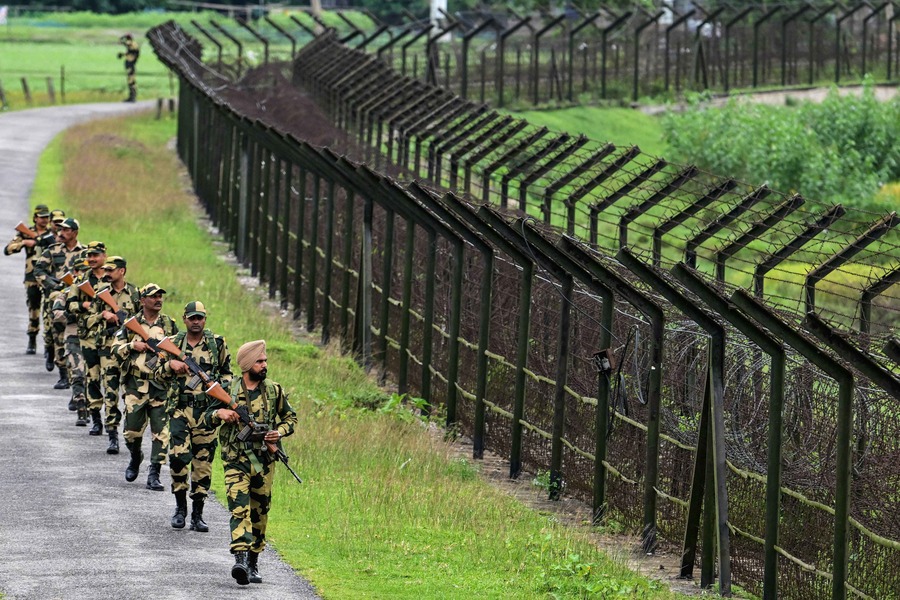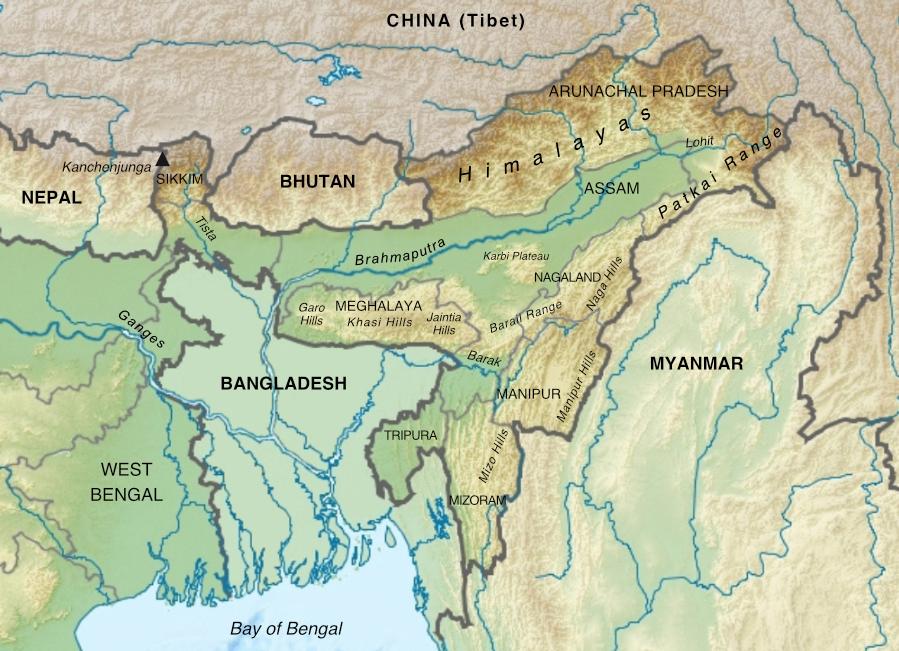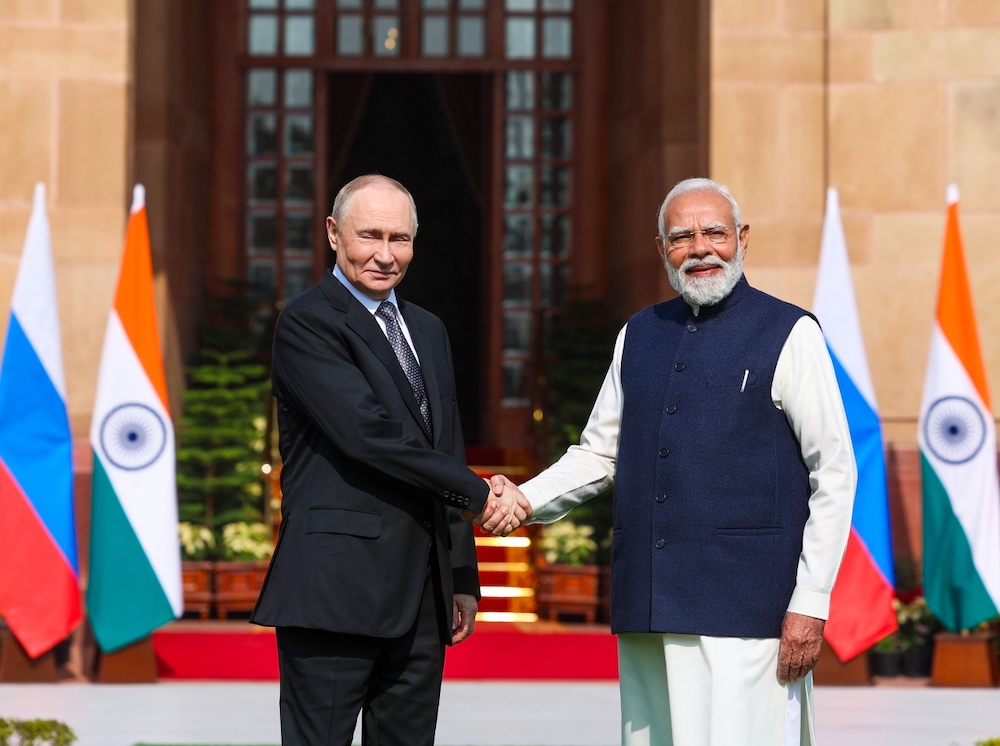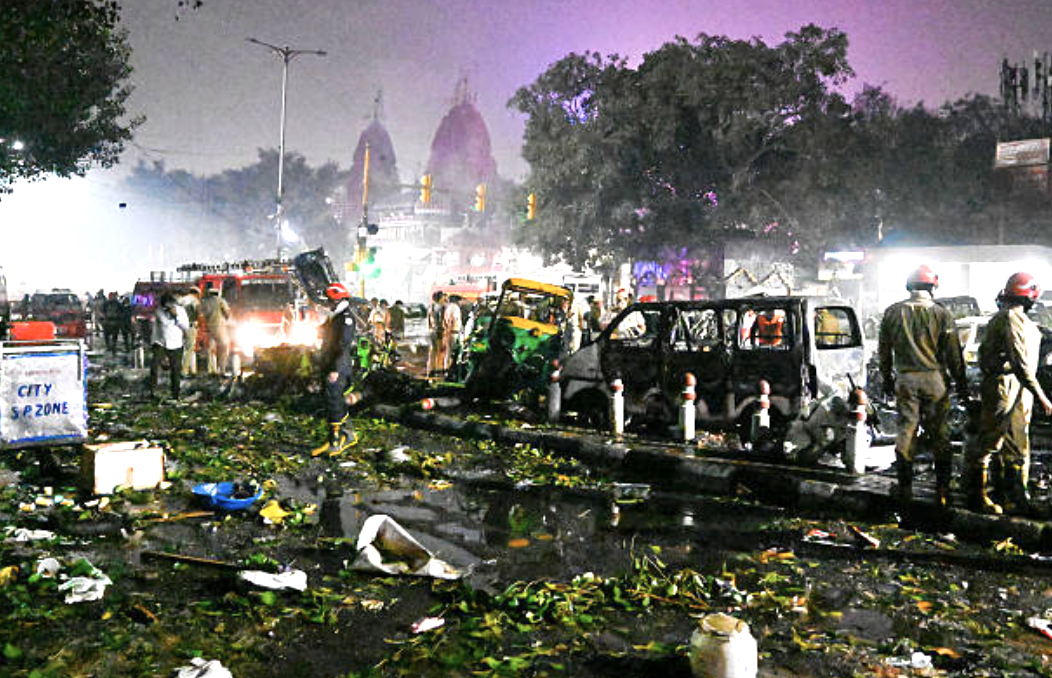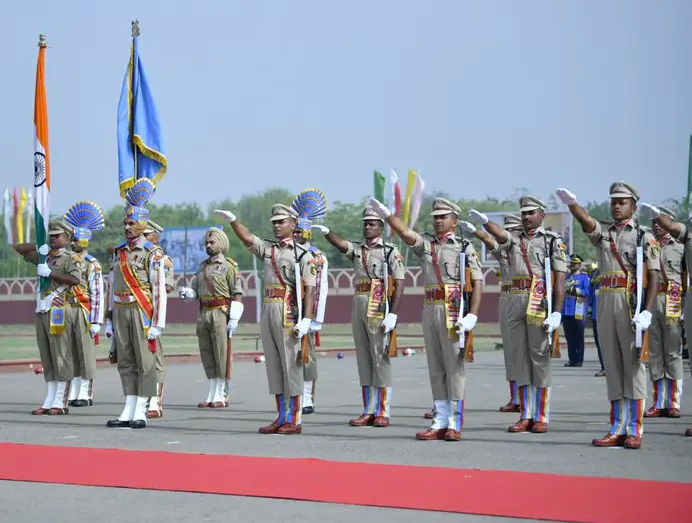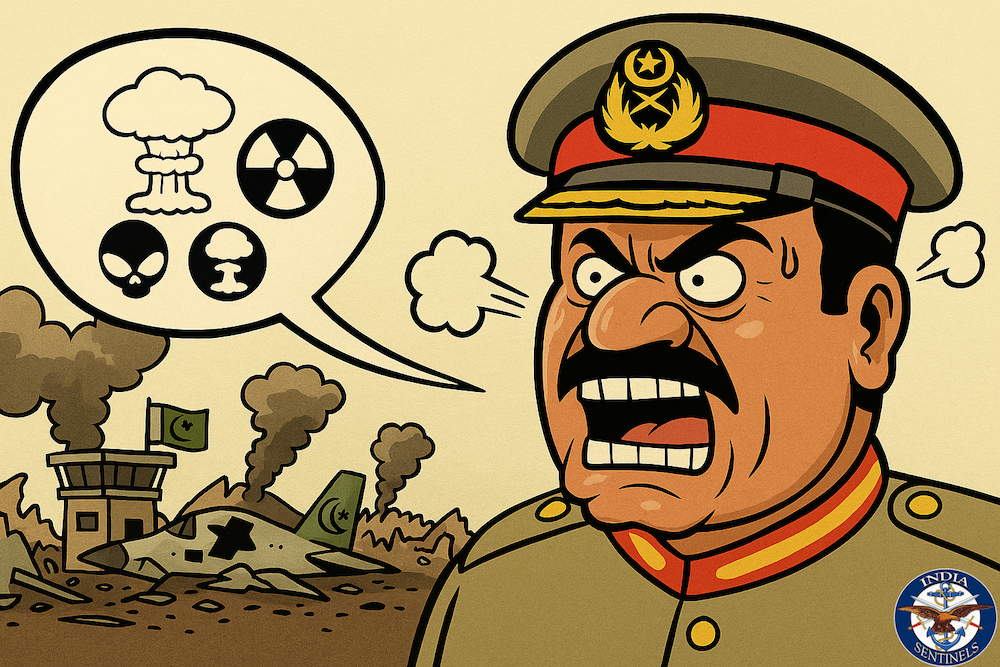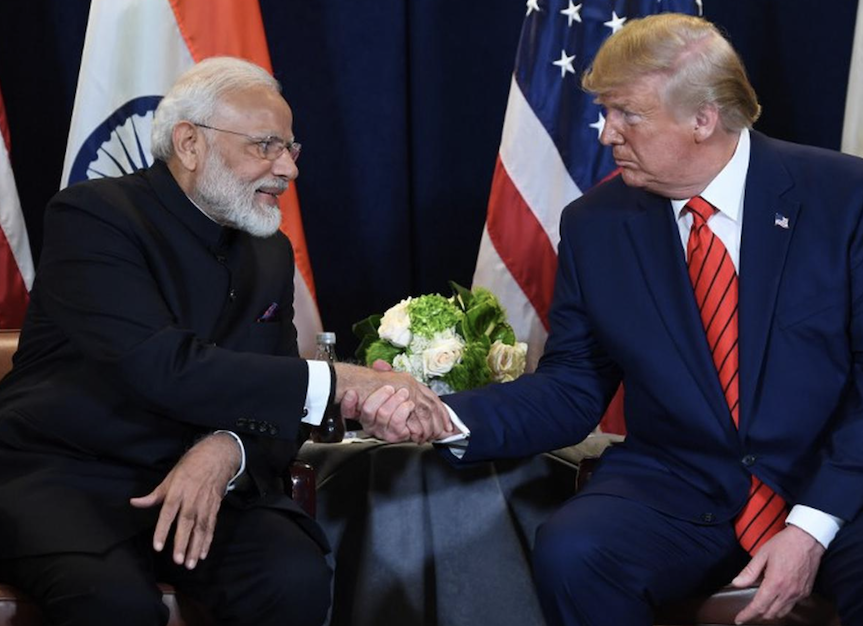 Kashmiris take out a vigil near Srinagar’s clock tower in memory of the victims of the terror attack in Pahalgam. (Photo via Facebook)
Kashmiris take out a vigil near Srinagar’s clock tower in memory of the victims of the terror attack in Pahalgam. (Photo via Facebook)
The unfortunate and highly deplorable attack in the meadows of Pahalgam – the first in a decade – has remarkably brought the government and opposition to the same page in combating terrorism. All political parties have agreed that the nation must stand united against this menace. In a media briefing, Union minister Kiren Rijiju said, “Leaders of all political parties have said in one voice that whatever steps the government takes, we will support it.”
This is neither the first major attack nor likely to be the last, serving as a stark reminder that despite peace initiatives and displayed muscularity over nearly a decade, Pakistan-sponsored terrorism continues unabated even after four decades. The Pahalgam incident has also rekindled political hope, with the chief minister of Jammu & Kashmir, Omar Abdullah, displaying rare statesmanship in today’s Indian political landscape.
Read also: Pahalgam attack is a wake-up call to shed myopic view on J&K proxy war
During a one-day special session of the J&K assembly, Abdullah stated, “As chief minister and minister of tourism, I bore the responsibility for having invited the visitors and ensuring their safe return – a responsibility I feel I failed to uphold.” He further emphasized that he would not exploit the terror attack to demand statehood from the Centre, as doing so would constitute “cheap politics”.
Unprecedented Solidarity in Kashmir
The terror incident shattered the conscience of the entire nation, including Jammu & Kashmir. For the first time, all political parties in the Union territory unanimously condemned Pakistan and its sponsorship of cross-border terrorism. The Union territory mourned the dastardly attack with one voice. As someone aptly noted on social media, “Earlier Kashmir was targeted for terrorism; now Kashmir is openly targeting terrorism.” The people and politicians of J&K demonstrated unprecedented unity, with condemnation emanating from all political, social, and religious platforms. Kashmiris stood as one and morally defeated Pakistan through their unwavering solidarity against terrorism, refuting those who question their loyalty to India despite facing terrorism in their daily lives.
Read also: Intelligence, structured force deployment key to finish J&K militancy
India’s Strategic Response
In the aftermath of Pahalgam, the government announced several measures which, though perhaps insufficient to completely deter Pakistan from sponsoring terrorism in J&K, will certainly turn Pakistani citizens against their military and government for hardships inflicted upon them through no fault of their own. These measures include keeping the 1960 Indus Waters Treaty in abeyance, immediate closure of the Integrated Check Post at Attari, scrapping the Saarc visa regime for Pakistanis, reducing the overall strength of the high commission from 50 to 30 along with expulsion of military, air, and naval advisors, and suspending visa services for Pakistani nationals.
Pakistan’s Reaction and Nuclear Posturing
These measures appear symbolic in nature, designed to pressure Pakistan into ceasing cross-border terrorism. Their effectiveness remains to be seen. Pakistan has reciprocated by closing the land border, suspending the Saarc visa regime, reducing diplomatic mission strength, closing Pakistani airspace to Indian aircraft, suspending Afghan exports to India through its territory, and holding the 1972 Shimla Agreement in abeyance. Pakistan has also continued cross-LoC firing in both Kashmir and Jammu regions to facilitate terrorist infiltration, essentially challenging the sanctity of the line of control. By characterizing the suspension of the Indus Waters Treaty as an “act of war” and threatening to respond, “with full force across the whole spectrum of national power,” Pakistan is implicitly brandishing its nuclear capability.
Read also: India must consolidate its western front to tame Pakistan
A Two-Pronged Strategy for J&K
The Pahalgam attack presents both a unique challenge and opportunity for the Union government to eradicate terrorism and unite Jammu & Kashmir in this fight. India needs to adopt a two-pronged strategy. First, internal stabilization of Jammu & Kashmir by strengthening the international border and LoC, enhancing intelligence capabilities, and restructuring hinterland security deployments. The second component involves harnessing the public anger against the Pahalgam attack to integrate the terrorism-weary people of J&K into the national mainstream through aggressive political and social community outreach programmes involving public representatives.
Development as Counterterrorism Tool
Internal stabilization should include massive development initiatives beyond just highways and tunnels. There is an urgent need for aggressive hinterland development in interior regions – improving roads, healthcare facilities, schools, electricity supply, and generating employment opportunities. If implemented, this could prove a game changer in the fight against terrorism. The Union government must actively partner with the state government to demonstrate its resolve to end terrorism.
Read also: Spike in J&K militant attacks – Time to reanalyse and restrategize
Avoiding Counterproductive Measures
Equally important is the need to consolidate the solidarity shown by Kashmiris against the Pahalgam attack, ensuring it does not dissipate due to knee-jerk security measures that could trigger anger and backlash. The government and security agencies should reconsider decisions like demolishing homes of locals suspected of joining terrorist groups, particularly where families have had no contact with these individuals for years. Local political parties have strongly voiced concerns against such collective punishment, which will likely prove counterproductive.
Limited Military Options
What options does India have? Terrorism represents an invisible, low-intensity conflict where governments have limited military options except to satisfy domestic audiences. Following the Jaish-e-Muhammad’s Uri attack in 2016, India conducted surgical strikes across the LoC. Similarly, after the 2019 Pulwama attack, air strikes targeted Jaish-e-Muhammad camps in Balakot, Pakistan’s Khyber Pakhtunkhwa province. These limited operations, while serving as retribution and highlighting Pakistan’s involvement in cross-border terrorism, failed to deter Pakistan or end terrorism. They have, however, created public expectations for action against Pakistan, placing the government in a difficult position.
Read also: Robust HUMINT network is the key to defeat militancy in J&K
The Risks of Escalation
The time for military strikes deep inside Pakistan appears to have passed, as Pakistan has had ample opportunity to anticipate India’s strategy and prepare accordingly. Any such strikes now might invite strong retaliation, leading to limited escalation potentially involving other neighbours like China and Bangladesh. China could leverage control over the Brahmaputra and Indus rivers while mobilizing forces along the line of actual control (LAC), creating an untenable three-front conflict for India. Bangladesh might also mobilize forces, escalating tensions on the eastern border. Initiating war at this juncture would be strategically unwise.
Controlled Border Response
The focus must remain on internal stabilization of Jammu & Kashmir to combat terrorism effectively. The prime minister, Narendra Modi, has wisely granted the armed forces freedom to choose targets and timing. India should strike Pakistan forcefully along the LoC and the international border in J&K, targeting deeper positions as part of controlled escalation, particularly since Pakistan has violated the ceasefire agreement.
Read also: Bringing Jammu & Kashmir out of the quagmire of militancy
A Path Forward
Alongside strengthening borders, intelligence capabilities, and restructuring hinterland security, aggressive development of interior regions is essential. If implemented sincerely, these measures could significantly reduce terrorism in Jammu & Kashmir within a reasonable timeframe. Professional handling of security and development initiatives by experts is crucial.
The government must recognize that Pakistan is a failed state heading towards disintegration due to governance failures on political, military, and economic fronts, essentially in a state of internal war. India should presently focus on internal stabilization of the Union territory through security enhancements and development initiatives. This approach will make operations more challenging for cross-border sponsors and their recruits in a unified Jammu & Kashmir standing resolute against the nefarious designs of terrorists and their foreign backers.
Disclaimer: The views expressed in the article are the author’s own and don’t necessarily reflect the views of India Sentinels.
Follow us on social media for quick updates, new photos, videos, and more.
X: https://x.com/indiasentinels
Facebook: https://facebook.com/indiasentinels
Instagram: https://instagram.com/indiasentinels
YouTube: https://youtube.com/indiasentinels
© India Sentinels 2025-26

